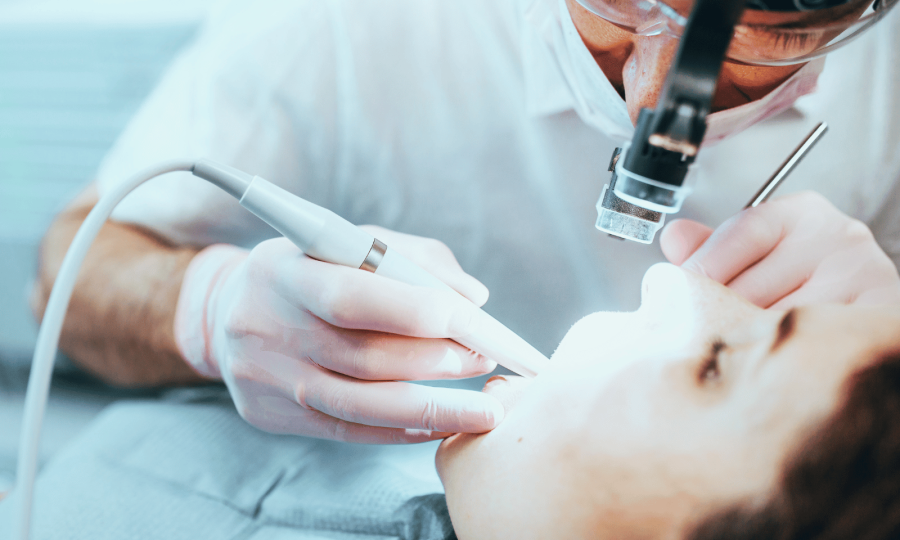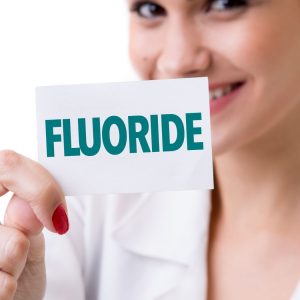What Happens During a Dental Cleaning?
It’s important to develop healthy, daily oral hygiene habits. But even the most diligent cleaner isn’t exempt from being advised to see their dentist a couple of times a year. Unfortunately, dental anxiety is a real thing that some people deal with. Knowing what to expect during a visit can go a long way to help ease anxiety.
When it comes to routine family dentistry, dental cleanings and exams are typically one of the most common reasons for most people to visit their dentist. Several things typically happen during one of these appointments, including a physical exam, cleaning, and fluoride treatment.
This article briefly summarizes what you can expect from a dental cleaning and exam and why it’s important to get them regularly.
Importance of a Dental Cleaning & Exam
The risk of discoloured teeth or developing gingivitis that can lead to gum disease are only two reasons why getting regular cleanings and exams are important. No matter how thoroughly you clean your teeth, a professional dental cleaning will typically clean your mouth in a way you simply cannot.
You can only see so much inside your mouth when you’re standing in front of a mirror. So, it’s potentially easy for gum disease or cavities to develop and go unnoticed until they start causing problems.
Cleaning & Exam Frequency
The Canadian Dental Association (CDA) recommends you visit your dentist at least 2 times per year for a cleaning and exam. This should be treated as a minimum requirement because your dentist considers your oral health when recommending exam frequency.
 Dental Cleaning Overview
Dental Cleaning Overview
Every dental cleaning won’t be identical. The process may vary slightly between dentists and their patients. Below, we’ll review a few common things that happen during most cleanings.
Physical Exam
The dentist typically performs an initial physical exam before any cleaning begins. A significant reason for this is to ensure no problems prevent the dental hygienist from cleaning your teeth.
After the rest of the cleaning is complete, many dentists will want to recheck your teeth. They perform a more thorough exam, looking for any signs of things like gum disease or infection.
Descaling
If a single thing could significantly lengthen your appointment, it may be the descaling process. The dental hygienist uses a mirror and a special tool called a descaler to remove all the plaque and tartar buildup from your teeth.
This buildup must be removed. All sorts of problems, such as gum disease, cavities, or infection, can develop if tartar and plaque are allowed to stay on your teeth.
Brushing
Once your teeth are free from plaque and tartar, the hygienist typically uses a special gritty toothpaste to polish them until they are smooth and clean. You may notice that the hygienist uses more force to brush than you normally would. If you brush like this every day, you could end up removing enamel or causing damage to your teeth and gums.
But when they are being brushed only a couple of times a year like this, it gives the hygienist a chance to really give your teeth a deep clean.
Floss & Rinse
After all the scraping and brushing, the hygienist typically moves on to flossing. This could be another part of the cleaning that takes a little longer if you haven’t been diligent with your daily flossing. But you can be assured that your teeth will be flossed as well as they can be after the hygienist is done.
Finally, your mouth will likely get a thorough rinse with water. You may even find that you’re getting your mouth rinsed throughout the entire process in some cases.
Fluoride Treatment
Arguably one of the most important parts of a dental cleaning is the fluoride treatment at the end. Typically, there will be several flavours you can choose from. Though, you don’t want to swallow the fluoride.
The hygienist usually puts the foam or paste in a mouthpiece that fits snugly on your teeth. After leaving it in for several minutes, you’ll spit the fluoride out and probably swish water around your mouth several times to prevent ingesting any of it.
Fluoride is crucial because it helps protect your teeth between cleanings. It strengthens the enamel on your teeth and helps prevent infection and tooth decay.
Discuss Your Next Visit to the Dentist With Us
You do your part by brushing and flossing daily; now let us do our part to ensure your mouth is the healthiest it can be.
Give us a call if you’re due for your next dental cleaning. Our professional team at South Bolton Dental Centre is happy to answer your questions. We can also book you an appointment with one of our dentists at a convenient time.









